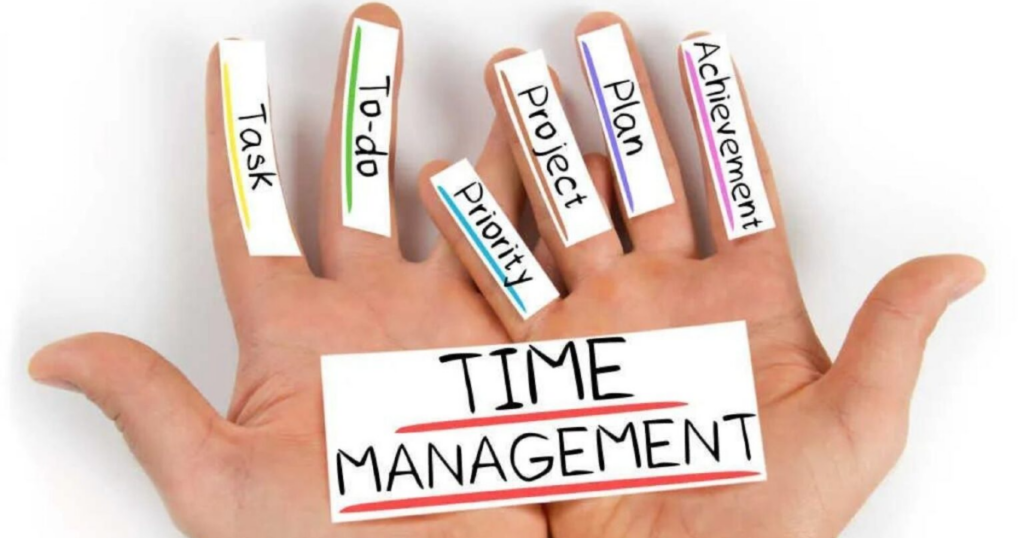
It can be difficult to understand specifically what the idea of ‘zen’ is. For some, it’s a feeling of peace and calm; for others, a minimalist life or even a destination that brings them happiness.
Truthfully, zen is none of the above scenarios.
The origin of zen lies within the concept of meditation, centering on a personal relationship between you and your mind. At its core, the art of zen is finally being able to come to peace with your thoughts, and the self-awareness of who you are in this universe.
At a basic level, zen is practised firstly by clearing your mind. Allow your thoughts to enter and leave, soar and fall organically, with no interaction or influence in any way.
As zen is rooted in meditation, applying it in the workplace can be a bit of a challenge. After all, the office is most often a fast-paced world of “go, go, go” and never “stop, pause, reflect”.
This can lead to imminent burnouts as we juggle the roles we’ve been assigned. Not forgetting, offices are most often not a conducive place to sit down quietly and meditate.
Despite that, there are several ways you can cultivate a higher level of mindfulness while still at work. It doesn’t have to involve getting out of your chair and setting up your yoga mat in a corner, but little things and practises to help you find peace in your thoughts and well-being.
By practising or honing a more zen-like state of mind (a.k.a. being mindful) in the office, there is better mental focus and attention channelled into what needs to be done. That includes being mindful of new information and differing points of view too.

Scents can help you calm your nerves and transition into a more peaceful state of mind. Certain scents like rosemary, peppermint, and citrus can even help you focus better as they contain properties that energise, uplift, open your breathing, and in some cases, are even anti-bacterial.
Depending on your preference, you can opt for anything from a soy wax air freshener (USD 9.81) to a state-of-the-art desktop diffuser (USD 99.00) to help you breathe and tap into zen while in the office.

If you find yourself losing attention quickly, the odds are it’s because of clutter all around you. A messy, unorganised environment can affect the way our brains work, resulting in procrastination, increased stress levels, and even poor eating habits.
The solution? Dispose of items that don’t spark joy. Start by organising your office stationery with IKEA’s TJENA desk organiser (USD 4.99), but if you need even more storage solutions, go big with this 5-tier mesh organiser (USD 39.59).

Now that you’ve disposed of things that don’t spark joy, you can welcome ones that create that in your heart. Practice the mantra of ‘less is more’ and choose simple, yet meaningful items that will keep you grounded and motivated at work.
It could be anything from small, simple, inspirational laptop stickers ($3.19) that will remind you to stay grounded, or even a blown-up poster of the peaceful ocean ($41.00) to remind you that this (whatever it may be), too, shall pass!

To reach a place of zen, sometimes it requires imaginative thinking. The imagery of a Japanese bamboo garden, a flowing stream of clear water, or perhaps an endless meadow below blue skies.
The one thing all these have in common is nature. By incorporating elements of nature into your workspace, like an adorable pack of mini succulents (USD 13.99) or a Monstera statement plant (USD141.00), greenery in the workplace has been proven to increase workplace happiness, and of course, the quality of indoor air.
Did you also know that having a number of plants by your working area has been proven to increase productivity by 15% (according to a study conducted in the UK and Netherlands)? All the more reason to go get those green thumbs moving!

When you need to get in touch with your inner goal-driven self, noise-cancelling earphones are a necessity to completely block out workplace chatter and idle noise so you can focus on yourself and on the now.
Take your pick of the audio buddy of your choice to accompany you, like these compact, noise-cancelling JBL earbuds (USD 99.95) or these sleek, wireless Sony earphones (USD 349.99).

Lyric-free music such as Beethoven’s Symphony 5, a Japanese bamboo water fountain, or even your favourite lo-fi playlist on Spotify can help improve our sense of learning, focus, and eliminate distracting background noise.
By plugging in your noise-cancelling earphones (or earbuds) and tuning into these soothing sounds, you’ll be able to clear your mind and boost efficient productivity at work. There are plenty of playlists on Spotify for focus that are completely free, or if you have a vintage vinyl player, check out Craig Kupka’s New Music for Relaxation ($21.98).

Related to the human body’s circadian rhythm, the presence of daylight or sources of natural light can enhance performance and moods at work. Remember: Blue/white lights make us energised, whereas red/amber lights increase melatonin secretion which improves mental health and leads to better sleep.
If your work desk is tucked away in the corner, far from natural light sources, you can still lift the mood with a multi-functional dimmable LED desk lamp with a built-in phone charger (USD27.99) or a minimalist lamp with gold accents (USD 129.60).

A healthy mind starts with a healthy diet! Despite the bad repertoire tidbits get, healthy snacks help improve brain functions, moods, and maintain your body’s sugar levels throughout the day.
Raisins and prunes are high-fibre treats and when mixed with nuts ($22.49) such as almonds, cashews, and walnuts, are a good source of healthy fat. For beverages, brew a hot cup of chamomile, lavender, or matcha to soothe your mood and mind, and indulge in a varie-tea pack of 8 flavours for just $17.99.
In the modern world, peace and mental health are just as important as physiological needs on the lowest rung of Maslow’s hierarchy. Depreciating mental health can impact work performance, productivity, communication, and even daily functions.
By creating a zen corner in your workplace, it represents a safe space for you to be at peace with yourself and your thoughts, accepting everything and yet, also nothing. Embracing and acting on the concept of ‘here and now’.
A zen workstation can contribute to higher productivity, lower stress levels, efficient time and energy management, and a strengthened focus to meet your end goals.
Needless to say, before you get your work in order, it’s time to get your surroundings in order. Namaste!

Imagine sending your manager your business proposal that you stayed up for a few nights to complete, and he suddenly calls you in to express his dissatisfaction towards the ENTIRE document plus orders you to redo everything. What would your reaction be? Would you take it personally and get discouraged, or would you see it as an opportunity to grow?
We’ve all been there, although the circumstances need not be the same: It’s the fear of being criticised by others. Yet, whether you like it or not, we’ll all face criticism at some point in our lives, be it at work, at home, or out in public.
So, what is criticism? According to the Cambridge Dictionary, it refers to “the act of giving your opinion or judgment about the good or bad qualities of something or someone”. In a workplace where everyone may be a critic in one way or another, that means you’re likely to receive some feedback that can sometimes be constructive or destructive.
How criticism is conveyed makes all the difference. It’s considered ‘constructive’ if the comment given is positive and encouraging, but it’s ‘destructive’ when the comment is negative and depressing. Take a look at the table below to better understand each criticism:

At work, criticism can come through official channels such as a one-on-one meeting with your supervisor or higher management. It can also happen more casually and organically, like receiving suggestions from a co-worker on how to improve the project you’re working on.
Regardless of the source, criticism of all types can be an essential part of an employee’s life. While it might be challenging to deal with, it can also be beneficial towards your career growth.
There are numerous ways to deal with criticism, both good and bad. Fortunately, you have the power to control how you respond to every positive and negative input, as well as use them to your advantage, so choose wisely!
One of the most fundamental ways of benefiting from workplace criticism is to be willing to listen. Open up your mind to take note of any critique from anyone in the office, and always assume that they have good intentions.
Allow yourself some time to think about the issue and the situation. Even if the delivery of the criticism might sound awful, keep in mind that it may not be intentional.
It’s also a good idea to restate the feedback to make sure you’re both on the same page. This will give you some time to process the comment and ensure that you don’t misunderstand anything. While you’re at it, practice acknowledging and thanking people for their contributions.

Your first reaction, whether verbal or nonverbal, can be perceived as a reflection of your maturity and professionalism. When it comes to responding to criticism, your facial expressions and body language are just as important as your words.
Nonverbal communication is also thought to be more truthful by others. As a result, it’s a good idea to take a deep breath and consider how you’ll react to any criticism, so you don’t end up saying something you’ll regret later on!
This will also give you a chance to gather your thoughts and manage your body language and facial expressions. Try to always maintain eye contact and avoid crossing your arms. Open body language will make you feel less defensive.
For most people, having spent hours upon hours at work every day will have them think that their job is an extension of themselves.
If this is the case for you, taking a hit on your work performance can make it seem like a personal attack, and dealing with that can be difficult.
Always remember that mistakes at the workplace are not reflections of your character, and as humans we’re bound to make them as part of our evolving process, so try not to take them personally.
Whenever you’re in doubt and have trouble understanding certain feedback, ask clarifying questions. Make no assumptions until you’ve done so. By asking for clarifications, you can gain a clearer grasp of their views, and where they are coming from.
They’ll be urged to justify rather than leave you with vague comments that will not help you improve in any way. Now, the following are some examples of possible questions you can use:

Scheduling a follow-up will demonstrate to your critic (especially your superiors!) that you’ve been paying attention and are committed to improving your performance at work.
Develop and present strategies in a scheduled meeting, to tackle the issues they’ve brought up. Not only will the critic feel valued and heard, but you’ll also gain the benefit of increasing your rapport and demonstrating that you’re a team player.
This will also serve as a platform for you to make any sensible counter-arguments if there are any aspects of the criticism with which you disagree. With stronger emotional control, you can express your case calmly, and help people see your point of view.
It’s easy to feel overwhelmed and stressed out, especially after working so hard to keep your emotions under control! It helps to be able to communicate with other trusted people when this happens.
Find a mentor, a colleague, or a friend with whom you can share the criticism and your thoughts/opinions. This is a good way to get feedback from individuals whom you trust, and also give you a chance to be open and honest about your feelings without being too hard on yourself.
You never know when you might learn something valuable from someone else’s experience that you can apply in the future.

Some people are outspoken in their criticism, while others are more reserved. Regardless of how it seems and whether it is positive or negative, you still have to face it. Even if it can be difficult to manage, always remember that you have complete control over your feelings.
You can try the tips below to improve how you feel about any criticism you get and better handle the situation the next time it arises:
If, after doing everything you can, the critic persists with their feedback and you recognise that the criticism you received is unfair, delivered in a harsh tone, or constantly done in public for everyone to hear, you must start taking extra precautionary measures.
This is especially when the situation continues despite your calm and respectful efforts to persuade to bring them round to your view. It’s time to request for a meeting with someone higher up the ladder.
Consider getting approval from a superior and do not launch an attack. Rather, make sure to include all pertinent information and convey both sides of the argument. Remain cool and rational when presenting why you think your side of the story makes more sense.
Keep in mind that the ultimate goal is to improve the situation for the company’s advantage, so don’t make things any more difficult than they are.

It’s a very different situation indeed, getting criticised by your boss as compared to getting criticised by one of your subordinates. Let’s look at the comparison below:
Employees usually question your credibility or even your decision. Even if the critic is someone lower down, it doesn’t hurt to open your mind and listen to what she or he has to say.
Consider their points and determine whether or not the criticism is fair. If you find some truth in their feedback, act on it and make an effort to improve yourself.
Have the humility to acknowledge your shortcomings and the confidence to do things differently. This will help improve the relationship between you and your subordinates.
Meanwhile, don’t be alarmed if your boss criticises your work style or your position at the office. Criticism doesn’t always mean that your job is in jeopardy. It indicates that your boss expects to see some improvements from you.
The most important thing is to demonstrate that you are a team player who is willing to improve yourself. It doesn’t hurt to say, “I’m eager to learn how I can improve my performance” or “How can I restore your confidence that this is being managed well?”
At the end of the day, you should be able to deliver the change. Determine a reasonable period for making the changes and ensuring that they are implemented.

It is beneficial to foster a feedback culture in any workplace to encourage personal and organisational development. However, being criticised, no matter how well you handle it, can be a traumatic experience.
Therefore, it’s important to realise that the comments don’t define you as a person, and that all you want to do is learn from the circumstance. Even if you believe the feedback has harmed your reputation and credibility, see it as a learning experience.
The bottom line is that you need to digest the feedback by absorbing what is truly useful to your development and discarding the rest, such as harsh words and rage. Only then will you realise that workplace criticism can be extremely beneficial.

A conducive and ideal work environment is optimal when it comes to enhancing staff productivity, teamwork, and job efficiency, as well as keeping employees motivated. However, creating that positive atmosphere takes more than just a comfy chair and a wide window-facing desk.
Four main factors that contribute to a conducive working environment are a committed workforce, clean and comfortable office space, availability of natural light, and clear communication on all levels.
These are the elements that make employees feel enthusiastic and always looking forward to having a good start at work each day. Although this is what everyone seeks, it can be far from reality as any workplace will have its fair share of drama.
You’re bound to run into one (or more!) person who enjoys causing conflict, and somehow trying to ruin your perfectly great day at work. So, what should you do if you come across an individual like that, and find yourself in a difficult situation?
To provide you with a clearer perspective, let’s delve into the meaning of conflict, what it is about, what are the ways to deal with it, and how to resolve your workplace conflict.
According to the Cambridge Dictionary, conflict is “an active disagreement between people with opposing opinions or principles”. What that basically means for a workplace is that employees don’t see eye-to-eye when working together.

That is why the minute we hear the word ‘conflict’, the first thing that probably comes to mind is a tense situation where one or more people are bickering, while the rest are trying to ignore them or frowning in dissatisfaction.
Conflict in the workplace is indeed unavoidable, but not all are bad! Conflict comes in many forms and some can be good. You can tell the difference by looking at the outcome.
If the conflict is constructive and brings out the best in employees, then it’s good. On the other hand, bad conflict is destructive, and takes a negative emotional toll. Below are some common examples of good and bad conflict in a workplace:

Source: Rumie-Learn
No matter which industry you work in, conflict is inevitable in any organisation. It could be due to various reasons including individual differences in cultural background, personality, and learning styles.
The following are some of the main reasons why some people are prone to causing unnecessary conflict situations at work:
Poor communication between team members, or between employees and the management, is a common source of workplace conflict. Misinformation can cause tension and misunderstanding among the employees.

Individuals with different perspectives coexist in any organisation. When people cannot accept and recognise each other’s differences, that is how conflict arises.
Employee resistance to change is one of the most prominent reasons for workplace conflict. This frequently occurs when they refuse to follow their management’s directions to implement new procedures or make unexpected changes to their job routine.
When employees are unsure of what is expected of them, they can feel demotivated and undervalued. Some employees may also take this for granted and leave a task uncompleted, because they believe they’re not responsible for it.
Different personalities exist in every work environment as people come from different backgrounds, cultures, experiences, and demographics. Conflict will arise unless employees learn to work together and embrace each other’s differences.

When management fails to notice that one or more employees in a department are underperforming and not working to their full capacity, conflict is bound to happen.
Organisations with a toxic work culture not only lead to conflict but also hurt productivity. Other hostile situations are bullying and abusive behaviour between team members.
Some managers could be biased and only listen to one side of the story. This lack of competent supervision can cause workplace disagreements because there is negative interaction from the management when dealing with issues.
When faced with conflicts, so many scenarios emerge as to how you should handle the situation and, of course, the person who caused it. First off, you should accept that conflict is a natural part of life and that it can occur frequently.
Always maintain a cool demeanour so that you may remain in control of the situation and your actions. You don’t want to make a mistake or say something hurtful that you’ll come to regret, or worse, that’ll cost you your job.
Here are some other ways of dealing with workplace conflict and difficult people:

While we have the right to express our opinions and dissatisfaction, confronting and opposing every matter that we disagree on, may not be the best approach. It could backfire, putting you in a bad light with your superiors and co-workers.
One good way is to keep a safe distance from people who are toxic and always spreading rumours, be it in the office or on your social media. If you ever feel that tensions are still lurking despite your best efforts, get a third person, someone who is familiar with the issue, to assist you.
Nonetheless, the end goal is always to reach a positive conflict resolution. These are some approaches for resolving workplace conflict:

Conflict can lead to stress, exhaustion, and depression if it isn’t resolved quickly. If you ever find yourself in an unpleasant working situation, learn to protect yourself using the measures listed below:
It’s clear by now that conflict is completely normal at any workplace. However, depending on how we interpret conflict and the outcomes that arise, it can be either constructive or destructive.
Some individuals believe that avoiding conflict is the simplest way to cope with it, yet this isn’t always the best approach. Instead, effective communication and listening are essential for resolving conflicts and improving staff morale.
Remember that you spend eight hours or more a day at work every week, so take advantage of your ‘me’ time at work, surround yourself with the right crowd of colleagues, and attempt to resolve problems whenever time permits.
By actively addressing conflict when it arises, both employees and management can progress toward a more positive work atmosphere.

We are living amidst a global pandemic that has disrupted the livelihoods and well-being of many workers across the world. Not only were there high fatalities in many countries, but it also greatly affected salaries, most industries, and the world economy.
Moreover, the back-to-back lockdowns imposed in some countries also affected work-life balance. A survey study conducted among German and Swiss employees even found that COVID-19 had worsened most employees’ work and private life.
Countless workers are becoming physically, mentally, and emotionally tired as they juggle between taking care of family members, changing workplace environments, managing work-from-home demands, and coping with the pandemic.
While certain sectors and industries are starting to recover, there’s still fear and uncertainty surrounding COVID-19. We don’t yet know how we’ll be affected, how long it’ll stay, or how severe things could become.
At the same time, the stress of dealing with work during the height of COVID-19 has increased the number of workers experiencing job burnout. As this can harm physical and emotional health, it’s important to understand if you’re suffering from this condition, and how to pull yourself through.

Burnout can be very difficult to detect as people often mistake it for being tired or stressed. The meaning itself has been debated for decades since the term was introduced in the 1970s.
Nonetheless, in 2019, the World Health Organisation (WHO) defined burnout as “a syndrome conceptualised as resulting from chronic workplace stress that has not been successfully managed”.
WHO did not classify burnout as a medical condition, but instead as an occupational phenomenon that is characterised by three dimensions:
Burnout can have a negative impact on your mental, physical, and emotional health. The symptoms usually appear when you’re overworked and feel as though you can no longer keep up with the demands of your job.
However, don’t confuse the feeling of burnout with work stress. People who are stressed out might be struggling to deal with pressures at work, but they can still believe that they would feel much better if their priorities are in order.
Burnout, on the other hand, is about feeling empty, emotionally drained, and can no longer cope with the demands at work or even life. The table below highlights the main differences between work stress and burnout:

Burnout can happen to anyone, at any stage of their working lives. If you’re still wondering whether or not you are experiencing burnout, these are the 11 red flags you should look out for:

This is way beyond just feeling tired. It can be emotional, mental, or even physical exhaustion and the feeling just doesn’t go away. So, if you have to literally drag yourself out of bed and go to work, you could be on the verge of burnout.
You are no longer excited about the work you’re doing. Nothing could interest you anymore, not even the activities you used to enjoy. If you can no longer feel enthused and encouraged, you should not only worry about burnout but also depression.
Losing the ability to focus and understand what is expected of you. You may notice that you’re getting forgetful, unsure of how to start your work, and having trouble concentrating.
You may not be able to perform properly in your daily activities if you are overwhelmed and drained. Try comparing your current job performance to past years’ performance to identify whether you have been suffering from burnout.
No matter what you do or where you are, negative thoughts and emotions keep lingering around you. You might also find yourself being more negative than usual. It is crucial to realise when you’ve developed unusual pessimistic and cynical personalities.
This is when you find yourself always arguing with other people, or maybe stop talking less to family and co-workers. The conflict could have taken place both at work and at home. Pay attention to when you begin to lose interest in others, particularly those who are close to you.
Some people who are burnt out will engage in harmful coping mechanisms such as binge drinking, smoking, being excessively sedentary, consuming more junk food, barely eating enough, or sleeping less.
Poor work-life balance is when you find yourself working longer hours, enduring more responsibilities at work, and having more obligations at home. This could lead to exhaustion, fatigue, and ultimately burnout.
You are always unhappy and feeling dissatisfied with your job, and even personal life. At work, this could lead you to experience a lack of interest in your tasks and company.
You could be burning out if you are troubled by unexplained headaches, stomach or digestive problems, or other physical ailments. Burnout has also been linked to several physical issues such as dyspnoea (shortness of breath), insomnia, chest pain, and arrhythmia (irregular heartbeat).

You may believe that what you’re doing no longer matters, and you may be disillusioned with just about everything. This means you are disappointed because the work you’re doing is not as good as you expected or hoped it would be.
Job burnout can be caused by a variety of factors, which vary from one person to another. However, there are several common factors that can be identified as causes of burnout, including:
As the signs differ between individuals (as they do with any illness), it’s vital to comprehend the stages of burnout before taking steps to prevent it. The following stages are the ones that are typically observed:

High job satisfaction and enthusiasm, even though you may have begun to experience predicted stresses.
Some days are more challenging than others, and your optimism is slowly fading.
A significant shift in your stress levels, from motivation to enduring stress on a regular basis.
Signs and symptoms become critical are you are burning out. It’s often impossible to carry on as normal at this stage.
The symptoms of burnout are so embedded in your life that you are more likely to have serious chronic mental, physical, and/or emotional problems.
Job burnout may be caused by the following factors:
If left untreated, burnout can have significant implications such as chronic illnesses, extreme irritability, and excessive stress. The feeling of burnout certainly seems severe enough that you must be wondering if you’ll ever be able to recover from it.
Before anything else, you must first acknowledge that you are experiencing burnout, and that you want to improve yourself to feel better. Only then you can try to recover yourself and start enjoying your job again. These are some of the best ways for you to bounce back from burnout:
Even though it is common for many employees to experience workplace burnout, it doesn’t always have to be that way. Ultimately, the solution boils down to one thing – YOU. Make your health a priority, recognise your involvement in burnout, and get help if you require it.
Your mental health is far more important, and you need to know when it is time to take a step back and re-energise yourself. It’s crucial to keep in mind that you can always do your best to prevent or manage workplace burnout, while also having a satisfying and rewarding job.

If you’ve been employed by a business for some time, you must’ve come across the term ‘performance review’. Corporate offices conduct frequent performance reviews to evaluate the productivity, efficiency, and morale of their workforce.
It is also a great way of making employees aware of their strengths to excel in their careers, as well as shortcomings that can be improved upon.
In a professional space, a performance review or performance appraisal refers to a type of formal assessment of the employee by the manager or a member of HR. The employee will be evaluated based on their work performance, strengths, and weaknesses.

Through a performance review, the manager can offer valuable feedback to the employee, in addition to setting long term goals and prospects for their future. Performance reviews are also directly related to job appraisals.
Though these are typically conducted by organisations once a year, in recent years, several companies have preferred more frequent evaluations of their workforce through a feedback performance management system.
This type of system allows managers to evaluate the employees quarterly, monthly, or even weekly. This has allowed better communication between the manager and the employees, improving productivity and efficiency.
In a corporate framework, performance reviews are of utmost importance. They serve a variety of purposes and are beneficial to both the employer and the employee alike.

So, now that you know and understand the importance of performance reviews in the professional setting, you should also know how to phrase answers to questions asked during such sessions. The way you write your learnings, experiences, strengths, and weaknesses can have a great impact on how your managers score you.
Hence, given below are 50 examples of phrases you should consider when writing your performance review for better exposure.
Performance reviews can provide valuable information about you, including your skills and goals. Performance reviews involve individual evaluations based on skills and goals, which are usually categorised depending on the phrases that correlate to each category.
Since the phrases that you use in your performance review have a significant impact on the feedback you receive, you should discuss your areas of weaknesses and shortcomings in a meaningful, constructive way, while highlighting your strengths, skills, and contribution to the company.
Let us discuss the 12 common skills that are usually evaluated and how to discuss them effectively, along with a list of the common phrases for each reviewed skill:

One of the most valued skills among employees, you should always highlight how good you are with creativity and innovation. Use the following phrases in your performance review to stand out to your managers and supervisors:
• “I have continuously suggested new ideas in meetings, and come up with effective solutions for the betterment of projects.”
• “I can apply creative thinking to successfully implement the missions and visions of the company.”
• “I have shown initiative and developed new ways of thinking to bring about improvements in projects, as well as team performance.”

Another highly valued trait, adaptability ensures teams perform well together, and is flexible to changes. The following phrases will help you highlight your adaptability in your performance review:
• “I am always willing to adjust my schedule to make sure I am readily available whenever I am needed.”
• “I can quickly adapt to changes, as is required by my duties.”
• “I am open to changes and adapt quickly according to the situations.”

The key to a conflict-free environment within a business setting is communication. Communication also drives better customer relationships, and hence is highly valued by companies. The phrases you should use to showcase your communication skills in your performance review are:
• “I can communicate with my colleagues, supervisors, partners, and customers efficiently.”
• “I can clearly communicate my ideas and thoughts in team meetings and conferences.”
• “I am a constructive communicator, and I am capable of discussing difficult issues effectively and to the point.”
• “I have a flair in giving out precise directions and effectively communicating what I expect from my team members.”
• “I am adept at communicating difficult messages and decisions skillfully.“

Taking responsibility for your actions is one of the traits that is well-respected in all settings, including in companies. Don’t forget to show your integrity with the following phrases that reflect how you take accountability for what you do:
• “I take ownership for the company’s failures and successes, and accept responsibility for myself, as a contributor in a team.”
• “I always admit mistakes and errors, and I make sure to inform others when I am unable to keep a commitment.“

A company cannot run smoothly if all employees do not work in coordination. Hence cooperation is a trait that is never overlooked by companies. Make sure to highlight how well you demonstrate this trait in your performance review, with the help of these phrases:
• “I have displayed cooperation with xx teams, by performing xx tasks, to contribute to xx project.”
• “I contribute to promoting cooperation within my team and outside, to ensure my colleagues work together to meet deadlines and complete projects successfully.”
• “I respect everyone and ensure all my colleagues get equal opportunities to express their opinions.”
• “I support others in fulfilling their tasks, and I am always eager to help in any which way I can.”

Delegation is a very important aspect of leadership. Understanding how, when, and who to delegate a task to is crucial to completing a task successfully. Hence, use these phrases to show your managers that you have leadership abilities and are ready to take on senior roles:
• “I know and understand the strengths and weaknesses of my coworkers, which helps me to delegate tasks efficiently, leading to quicker and smoother completion of work.”
• “I always delegate responsibilities with clearly defined tasks and goals, leaving minimal space for any confusion.”

This point is to show that you know where your weaknesses are, and where you think you have room for improvement. Handle this point delicately since you don’t want to make a negative impression, but saying you are perfect with no room for improvement is also not a solution. Use the following phrases and you can ace this point:
• “I often struggle to effectively overcome new challenges, but I always do my best to find solutions to new issues.”
• “I need to focus more on what can be done when a problem arises, instead of what cannot be done.”
• “I am more focused on my work responsibilities, but I believe I need to strive more on developing and maintaining professional relationships.”

No company likes an employee who frequently comes late to work and takes leaves recurrently. Your punctuality and attendance show your dedication to work. Hence, use the following phrases to highlight your consistency:
• “I consistently arrive on or before time for work, including meetings and conferences.”
• “My attendance record is excellent and I have never violated the company’s standard attendance policy.”
• “I begin each day at work fully refreshed and prepared to take on any challenge.”
• “I am always open to rescheduling my time-offs to accommodate urgent tasks.”
• “I always schedule my time off in advance to make sure my absence doesn’t inconvenience the team, and can be relied upon for completing my tasks on time.”

Of course, this is THE point that you need to highlight more than any others to show how you’ve helped contribute to the success of the company. The following phrases can be helpful:
• “I have successfully achieved the goals set for me by the company and myself, contributing to xx profit for the team and the company.”
• “I have helped improve the project xx by xx%.”
• “I have made an effective system that has allowed me to streamline xx work processes by doing xx.”
• “I am enhancing my growth potential through additional education and training.”

Leadership skills are highly valued by companies since leaders are the ones who ensure teams perform to the fullest potential and continuously strive to improve their performances. The following phrases can help to highlight your leadership qualities:
• “I have contributed to effectively managing my team members when needed, and conducted specific exercises to strengthen our coordination and relationship.”
• “I provide my subordinates with all the necessary resources and training as are required to fulfil their responsibilities.”
• “I have maintained a culture of transparency and knowledge sharing across all levels in my department.”
• “I encourage transparent communication among team members, and have successfully resolved conflict situations without hampering the team bonding.”
• “I acknowledge accomplishments and recognise employees fairly.”

How good are you at solving problems? It is a skill that no one can teach you, which is why it is sought after by companies. Make sure you bring the focus of your managers to your problem-solving skills through these phrases:
• “I have independently solved complex problems contributing to the resolution and betterment of xx project.”
• “I can break a problem down before analysing it in a more detailed manner, and then resolving it accordingly.”
• “I know how to collaborate with others effectively to find solutions to problems.”
• “I am extremely articulate and I can explain my ideas and opinions clearly, leaving no room for miscommunication which helps to neutralise conflict situations.”
• “When faced with a problem, I listen first, take into account everything, and then try to come up with a solution.”

Taking into account all your best qualities, if you are not productive enough, the other traits mean nothing to the company. As such, do mention how productive you are in your performance review with the help of the following phrases:
• “I positively contribute to the overall performance of the company through consistent and high-quality work.”
• “I continuously strive to improve profits, productivity, and performance targets.”
• “I have shown strong time management and organisational skills.”
• “I am a detail-oriented individual, which is reflected positively in my work.”
• “I can share my knowledge of industry trends and best practices to achieve enhanced outcomes in my job.”

Being a team player and maintaining a cordial relationship with colleagues and customers goes a long way in moving forward in your career. This is why interpersonal skills are so widely valued by businesses. Use the phrases given below to showcase your interpersonal skills and win brownie points from your manager:
• “I work well within a team environment to achieve specific tasks and complete projects.”
• “I have developed constructive working relationships with internal and external stakeholders, and work towards maintaining them.”
• “I am an effective team player and I have continuously demonstrated my willingness to help out and contribute as and when required.”
As an employee, the performance review is an invaluable way of assessing individual strengths and weaknesses, as well as how you put them to use in benefiting the company. Performance reviews play an excellent role in improving employee performances, and ensuring greater success for everyone involved in the long run.
Hopefully, the above phrases will help you write your performance review in a way that catches the right attention, and helps you climb the ladder of success!

Let’s be real, most of us are not good at making the first move towards a conversation. Especially if it’s a stranger or a setting we are unfamiliar with. Yet, conversations drive connections, and connections are gold coins in the corporate world. Before you step into the corporate sector, you have to be well-equipped.
Can’t figure out how to navigate these challenges and start a conversation in your new workplace? Here’s our straight-to-the-point 8 step guide to nailing the much-needed networking skill.

Sometimes there’s just no clever way to do it. You have to begin at the beginning. That means you ask questions about the person. Asking such questions means you are definitely interested in a conversation. Ask them about their work, or about a vacation they recently took, or about how they organise their work desks.
In most cases, asking questions will lead you to discover shared experiences, maybe you both love traveling or hiking, or maybe you’re gushing over the same football team. There’s no end to the number of things you could discover about each other when you start asking about them. Be sincere with your questions and show interest in what they have to say, but do not ask intrusive questions.
One tip to go about asking the right questions is to feel the vibe of the person in front of you, and navigate the conversation accordingly. People usually like talking about themselves and their experiences, you just have to ask the right questions. If you can get this right, we guarantee that you will have a workplace friend in no time.
Examples:
“Is that your picture? Wow, where was it taken? The place looks amazing!”
“How long have you been working as a copywriter? What got you into it?”

Compliments go a long way when it comes to starting conversations, but don’t go overboard and end up becoming all mushy. Pay a tiny compliment to your colleague. It could be anything you like about them, like complimenting their handwriting if you see it in front of you.
Tell them you love their hairstyle. You could tell them how cool their shoes are. Anything that is right in front of you and would not make them feel like you are being too intrusive. Be genuine too, don’t say it just for the sake of saying it.
Compliments brighten up people’s days, and do wonders for their confidence. On top of it, you could easily ask questions to follow it up, like where did they get their shoes from or who is their hairstylist, and keep the conversation going.
Examples:
“I love this shirt on you. Where did you get it from?”
“This new hair colour looks wonderful on you! Which salon did you go to?”

Start mundane and general. Talk about the weather. Talk about the new pizza shop in town. Ask for café recommendations. Or the latest movie they might have watched. Something general, that is not invasive, but shows that you are interested in talking to them.
There’s no need to be clever with words and ideas when it comes to workplace conversation starters. All it needs to be is appropriate and relatable. As long as you keep it neutral you do not run the risk of hurting anyone. Small talk might be difficult for some people, but that is exactly how you can navigate office conversations: Start small, go big later. All in good time.
Examples:
“Do you think it’s going to rain later?”
“Did you try the café around the corner? How is it?”

You could also reverse the ball game here. If you find yourself in a fix, ask for their opinion on a matter you are struggling with. This works wonders because you have made the next person feel like they have helped you, their presence has mattered, and that is something that can make someone feel wonderful.
Trust us, making a person feel good is a good way to build friendships. If someone is able to help you, being on their favourable list is almost a sure thing. They trust you because you trust them. So, go ahead, do not hesitate to ask for help the next time you need it.
Examples:
“Can you please help me with this printer? It seems to have a mind of its own!”
“Can you please show me how to work this attendance app?”

You know what might work even when it can be considered very formal? An introduction. An introduction usually shows a clear indication that you are interested in beginning a conversation, and building a relationship with them. If you’ve just started and are completely new at the office or the department, then make the first move of going ahead and introducing yourself. You can then keep asking professional questions about them or the company, and continue the conversation.
Examples:
“Hi, I am Susan and I am the new copywriter. Nice to meet you. Which department are you from?”
“Hello, I am Susan. I just started today as the new copywriter. May I know your name?”

Passing a pleasant comment about some shared experience often does the trick when all else fails. You could make a general observation about something you have both experienced. Like the office party last weekend. Or the UNO game you played the evening before.
It could be something about the movie fandom you both like watching. If there’s a sports game you both love, try to cash in on something around it. Ask them what they felt during the latest match. Make them feel welcome, then let the conversation take its own course.
Examples:
“I didn’t know you were a Harry Potter fan as well! Which house are you in?”
“Last night’s party was so fun, did you try [insert name of dish]? I wish we could do this more often.”

Starting a conversation in the workplace will not be tricky as long as you stick to appropriate topics and issues. Asking for some kind of information is the easiest way to initiate a conversation in a business setting. It is safe, it is easy, and it is a question so it ensures a reply (most of the time!). Even if you already know the answer, there’s no harm in asking.
This is an amazingly easy way to begin building a rapport with someone. It could be something about the project you are working on together. Or it could be about some work trip you are going to. Or a conference you will attend. There are plenty of options to choose from. Take your pick.
Examples:
“Do you have any idea if we are allowed to bring our families on this trip?”
“Do you know if our CEO will be speaking at this event?”

Another smooth way to initiate a conversation is to offer help. If there is ever a time that you find yourself in a situation where you can be of some help, go ahead and offer it. It easily puts you into their good books, you are instantly likeable, and chances are the person will themselves drive the conversation.
Show genuine concern, that is a zero-fail way to earn someone’s trust in any situation, no matter who the person is or how long you have known them.
Examples:
“Let me help you carry all these items.”
“Do you need help decorating the office for Christmas?”
Since these are your colleagues, do stick to safer subjects like sports, family, tv shows, movies, food, and all the general stuff. It is alright to linger on the periphery of work-related issues. But do not go all intrusive at the very first go. Be polite, sincere, and aware.
Starting a conversation at a new workplace or in a business setting might seem like a daunting task in the beginning, but give yourself and the people around you some time, and you will soon get the hang of it.
Steer clear of asking personal questions (like if they’re married or single) or invading into areas that people prefer to keep to themselves. You’re just starting out, let the relationship grow in its natural way and avoid asking about their salary, political, or religious beliefs. It usually will not go down well with strangers. Also, definitely steer clear of gossip and controversies!
Hopefully, by following our tips, you will find it easier to navigate through office conversations. By keeping the conversations light-hearted, sincere, and devoid of controversial topics, you’ll soon be able to win hearts at your workplace.
And, with the right approach, you’ll also be able to keep the conversation smoothly moving forward in a productive way and ensure that you are building great business relationships easily. All the best, and happy conversations!

Managing time is the key to success. Many people know that, but not many succeed at implementing it. However, time management skills are now more crucial than ever. Due to the Covid-19 pandemic, hybrid working culture has had employees feeling overwhelmed by ineffective organisation skills, including time management.
As the name suggests, time management is a skill to greatly organise and utilise your time, so that you’re aware of the tasks at hand and upcoming work schedule. More importantly, having time management skills help you to free up your time for personal well-being.
So, why does time management matter? Having a well-organised schedule helps you to carefully plan your tasks and execute them in a timely manner. Completing tasks in accordance with the due date helps build trust, reduce stress levels, and boost productivity, which explains why time management skills are highly valuable to both employees and organisations.
With a well-arranged workload that’s neatly organised, you’ll be able to see the whole picture of what tasks need to be completed, as well as when. This means that you should constantly update and check your schedule to ensure that no tasks overlap each other.
Setting both long- and short-term goals will boost your motivation to complete any and all tasks on time, as it guides you to see clearly what you’ll need to do and prioritise, in order to achieve your set goals.
Having good communication skills is one of the major keys to effective time management, especially when it comes to delegating tasks. When we’re able to do this effectively, it allows us to make plans with our colleagues to ensure that all tasks are assigned fairly and in accordance to each person’s capabilities, thereby allowing for goals to be met faster.

Knowing which tasks to prioritise will allow us to know which task needs to be accomplished first. There are multiple ways in deciding which are to be prioritised. The simplest way is to determine based on the due date of each task. The longer it’s due, the least it should be prioritised. However, remember to take into consideration the amount of effort needed to complete the task. Some generally take longer to finish, which explains why they have a longer due date.
Being good at delegating tasks will help in completing the tasks quicker, which leads to saving time. This skill is most needed when you’re in the managerial position. However, it’s just as important if you’re on the receiving end. Learning to say “no” is also crucial as it helps set boundaries to manage your time, in order to achieve your own goals.
Effectively managing your time will result in more productivity and efficiency in your career. Having a well-planned schedule will help you in completing the tasks promptly. It’s no secret that when one is given ample time to do their work, it’ll result in better quality. Hence, with excellent time management skills, you’ll always complete your tasks ahead of time.
Being good at time managing means you have lesser chances to procrastinate. Often enough, we’ll convince ourselves to do anything other than the main tasks as a stress-coping mechanism. Hence, if we’ve learned effective ways of managing our time and working according to the schedules we’ve created, it’ll reduce our urge to procrastinate over things. Creating a day-to-day to-do list will also help in getting the job done.
Too busy for yourself? That’s just an excuse for bad time management! When you’ve learned to delegate tasks efficiently, you’ll be able to create some time for yourself to do what you really enjoy doing. It’s bad for our mental health if we’re constantly working without a break. Your pent-up frustration will eventually lead to burnout, which will be harder to recover from.
Most of the time, if we’re bad with time management, we’ll end up taking too much work on our plates. The feeling of being overwhelmed will eventually increase your stress and anxiety. Having too much of those will ultimately harm both your mental and physical health. Naturally, when our health is affected, so will our productivity. Hence, it’s best if we’re able to manage our time properly to reduce unnecessary stress.

Making a daily schedule is crucial for efficient time management. With a well-organised to-do list, you’re able to prevent yourself from procrastinating over tasks that are always at the back of your head.
Generally, knowing how to multitask is a crucial skill. However, most of the time, when we’re multitasking, it tends to make us lose focus on the important task at hand due to all the other distractions we’re getting. And we know it sounds hard to believe, but most people who attempt to multitask lose productivity and time when they switch from one task to another.
Allocating time to do similar tasks is one of the ways that will help you to save time. When you allocate a certain period to do certain types of tasks, you’ll save yourself the mental energy of switching between tasks requiring different cognitive skills.
The Pomodoro technique is very effective, especially for people with ADHD. Pomodoro techniques generally structure your tasks into a short burst of focus time, in which you’re able to take a break after that burst.
For example, when working on a task, set a timer for 30 minutes and start working. Once the buzzer rings, you’re entitled to a 5 – 10 minutes break. These interval breaks between work are known as Pomodoro, which are very effective for efficient time management.
You should always prioritise important tasks as you plan your to-do list when you’re managing your time. Begin by identifying the due date and how much time is needed for each individual task. You should also take into consideration how important the tasks are.
There’s a difference between urgent and important tasks. Some tasks are generally more important than others even though they’re urgent – i.e., tasks given by the CEO and Head of Department. If so, you should tactfully push back certain less important tasks, especially if your peers or colleagues give them.

Little did you know, most of our time will be spent on unnecessary distractions such as social media, chit-chatting with colleagues, and more. And usually, the 2 minutes we said we needed to check social media will turn into 20 minutes without us even knowing. To avoid that, why not take a few minutes to learn about the things that may distract you so that you can avoid them and be more productive at work?
As Henry D. Thoreau once said, “It is not enough to be busy… The question is: what are we busy about?” With that being said, you should always be aware of your to-do list and what you’re spending most of your time on. We’re sure you’re aware by now how important effective time management skills can be in your everyday lives. So, start practicing these tips and tricks mentioned above and make it a habit so that you can utilise your time in doing important things!

Being passionate about the job you have and witnessing your own growth is easily one of the most satisfying feelings. After all, it takes hard work to be successful in what you do. That being said, are you sure you’re getting properly financially compensated for it?
If you have a feeling that you’re putting in more effort than what you’re getting in the bank every month; it’s time to ask for a raise. Here’s a complete guide on salary increments, and how to negotiate for one!
To put it layman’s terms: It’s a raise! A salary increment is an addition to an employee’s monthly/yearly salary. An employer can increase the amount that an employee receives as an annual salary, which doesn’t include bonuses.
There are several types of salary increments that you might be entitled to receive at work:
There are several reasons as to why you might be eligible for a salary increment, which may include:
The salary you’re currently receiving at your company was decided upon based on the capabilities and achievements of your last position. You’ve since then taken on new tasks and responsibilities, which is enough reason for a raise.
Employees who have a positive mindset are generally favoured by companies. This is because it’s infectious – and you’ll end up influencing your colleagues to do better as well. Consistency in your work ethic also helps prove your dedication to the job.
Receiving a new change of role usually comes with the opportunity to discuss a salary increment. Discuss how your new tasks and responsibility would be worked into this new range of salary.
Though it would be fun to burst into your boss’s office Hollywood-style, and shake your fist in their face demanding for it – salary increments in real life are definitely not that dramatic. Besides, pulling something like that would just result in them calling for security to evict you, which is far from what we want.

Here are some effective ways for you to negotiate a salary increment with your higher-ups, in a more professional manner:
Timing is everything. Always practice mindfulness when negotiating for a salary increment as it could easily go downhill if you lack tact. Think of the financial health of your company; has there been any recent successful campaigns?
Or alternatively, have there been budget cuts and employees were let go? Once you’ve understood how your company is standing financially, you’ll know when is the best time to negotiate for a salary increment that you’ll most likely receive.
Ask yourself how much have you contributed to your company. Have you been proactive in taking on tasks? Do you mentor other employees? Your role in the company is more important than you might realise, especially if you’ve committed a few years to it.
Have any huge wins from past projects? Now’s the best time to come forth with them. Create a presentation (extra brownie points for your extra effort!) or a binder of all your successful accomplishments as evidence of why you deserve a salary increment.
When it comes to salary increments, industry research is crucial. Find out how much the average salary is for people in your industry or similar jobs that offer the position. This will help you develop a range for your salary increment estimation. You wouldn’t want to put a price that’s too high and will get rejected on the spot – or one that is too low, either.
The art of negotiation is not a simple feat to conquer. It’s all about the right balance between push and pull; hitting that sweet spot before going in for the kill. Try writing an outline and running it through with a friend, or even practicing through bargaining at a market! Determining your tone as well as the confidence boost will help you when D-Day arrives.
There’s a sea of tactics that you can use to negotiate your salary increments. Here are our picks for the most effective steps to negotiate a raise.

Research and find what your company or department is currently struggling to achieve, or even introduce a new angle that could possibly be tapped into. Once you’ve got your supervisor interested, start proposing a detailed solution. This shows how committed you are, and therefore worth a salary increment.
Your market value has changed since you last joined your company. It’s time to do some industry research and look into how much someone with your skills and seniority is worth before putting in your request for a salary increment. It also helps to justify the range!
Leave humility at the door for this one; it’s time to show them what you do best. Bring up all of your skills, your responsibilities (and how you excel at them!), as well as your excellent performance record. This helps persuade your employer as you’ve just showcased why you’re a good catch.
Impact matters, which is why you’ll need facts to back up your statements. Provide solid evidence in the form of quantitative data, as measurable results do the best talking. Don’t be afraid to into deep detail about all of your achievements either!
Even though factors like discussing your worth may seem emotional, it’s important to keep your cool and remain professional. It’s not the time for low blows at colleagues or threats; keep all of that at the door! Remember that confidence goes a long way and stay true to yourself.
With all of the above in place, we hope that you’re ready to get that salary increment you deserve! Always remember to be prepared beforehand and enter with a clear goal in mind; your employer will value you for not wanting to waste either of your time.
Don’t forget to stay positive regardless of the results of the salary increment negotiation; it’s a learning curve! The experience itself is beneficial and will come in handy for the next time there’s potential for a raise in the future. All the best for your future ventures!

Social skills, also known as interpersonal skills, are soft skills that allow you to interact and communicate efficiently with others. Both verbal and non-verbal language skills are important parts of efficient social skills.
To be able to ‘commute verbally’ means communicating in an appropriate tone and volume based on the surroundings we’re in, and to ‘commute non-verbally’ means communicating with subtle body language such as facial gestures.
More often than not, all employers are looking for potential candidates with good social skills to fit their opening roles. Why? Because most jobs require their employees to work with others, so by not getting along with your colleagues or team members, it’ll definitely disrupt the organisation’s workflow.
And unlike professional skills (also known as hard skills), which can be acquired through training, education, and job experience, social skills can only be developed as a part of your personality traits.
Having interpersonal skills is knowing how to socialise with others, including workplace discussions and meetings, effectively. Understanding how to identify and interpret social cues such as your co-workers’ body language and moods will also allow you to work better and develop healthy relationships with them.
Having intrapersonal skills is knowing how to express your own thoughts, ideas, and emotions appropriately. Understanding the social boundaries between you and your colleagues and applying different strategies in engaging with those who can be somewhat difficult to handle are also essential parts of intrapersonal skills.

Verbal communication skills are skills that allow you to express yourself in a clear and precise manner so that others can easily understand you. Having good verbal skills allows you to transfer any message and information accurately. Verbal communication doesn’t only mean speaking but writing as well. Writing emails, letters, and reports appropriately, language, grammar, and format is also crucial in professional settings.
On the other hand, non-verbal communication skills are skills that allow you to communicate beyond mere words that spout through your mouth. Non-verbal communication includes facial expressions, body language, tone and pitch of the voice, and the physical distance between the speakers and the listeners.
When you develop your social skills, you’ll also be developing your charisma, which is a good thing. People who are more charismatic will attract people around them effortlessly. In many instances, personally, having quality relationships with many people will allow you to gain more friends, and professionally, having great social skills may get you the promotion or dream job you’ve always wanted. The more friends you know, the merrier!
Most of the time, when you interact well with people, you’re able to avoid the dreadful situation where there are internal conflicts between you and your colleagues. It’s a lot easier when you work in a place without having too much toxic people or ‘drama’. As a result, you and your colleagues will have similar interests and viewpoints, and share a common goal, which leads to greater efficiency when working. Workers who have a strong bond together are generally more loyal to the company they’re working for.
As mentioned, having good social skills will reduce conflict among you and your colleagues. And what does that entail? A better workplace environment. Getting along with your colleagues and understanding how they’re feeling will help create a friendly working environment. Everyone will also start communicating your thoughts and feelings efficiently. Finding joy in your workplace can yield enormous advantages, especially when it comes to building relationships between employers and employees.
Do you know why having a referral letter is essential when you’re applying for work? Because having one shows your hiring managers and employers that there are people who are willing to vouch for you. Hence, having a referral letter which speaks favourably of you will portray that you’re efficient, reliable, and trustable at your previous workplace. The ability to get things done is not the only soft skill your future bosses are looking for when hiring you. They are also looking into how well you can fit into the new team, as well as help boost their overall morale and working motivation.

Being an active listener is just as important as being able to communicate effectively. When you listen attentively to what your colleagues have to say and what they ask of you, it shows them that you’re comfortable with them sharing their opinions and input. It’s crucial to use certain non-verbal communication skills, such as maintaining eye contact and having open body language when you’re paying attention to your listeners. When you’re willing to listen to others, others will also be willing to listen to you. Hence, being an active listener is definitely crucial to developing excellent social skills.
Setting common goals that you want to achieve with your colleagues is essential to building your social skills. When you and your co-workers have common goals, it might just encourage the entire team to become more productive, together! When all your team members have a common goal, without realising it, you’ll start to have more meetings to check in on everyone’s progress on the assigned tasks. And when your team is able to achieve these goals, all of you will share a sense of achievement, which ultimately leads to becoming a better team.
It’s essential for you to be up-to-date with the local or worldwide trending news so that you’re able to have engaging conversations with others, strangers included. Like it or not, you’re going to meet someone new at any time in life. Hence, knowing what’s going on with the world or your country will give you the topics needed to hold a conversation. However, remember to avoid controversial topics such as religion and politics with your acquaintances, or someone you’ve just met. These issues may be interesting to you, but they might be offensive to others!
There’s more than just the trending news to help you keep a conversation going. It would help if you tried to venture into other resources such as books, podcasts, YouTube videos, web articles, and many more to improve your social skills. Besides having an even wider range of topics to talk about, you should also try going to classes or watching tutorials related to social skills, such as body language topics or how to be an active listener.
After knowing how having efficient social skills will help in both your personal and professional lives, we’re sure you’re wondering, “How can I acquire social skills when it’s not something to be learned easily?” Well, fret not, because as they always say, practice makes perfect!
Let’s start by assessing what we can do for us to be more approachable. Perhaps you have a face that reflects constant disapproval, or you have a hard time verbally expressing your thoughts during a meeting/one-on-one situation.
That’s where practising comes in, and you need to do it often. Try having an open expression that’s generally welcoming when you talk to others, and practise in front of a mirror, or with friends and family. Ditto for the hard time expressing yourself, just keep trying out various versions of what you want to say in front of a mirror or trusted people. The more you work on your social skills, the better you’ll become!

Regardless of what industries you’re interested in working in or your experiences, we all know that critical thinking is the most important soft skill every employer needs. Not having good critical thinking skills may make or break a person’s career.
But what exactly is critical thinking? Thinking critically can be translated as having the rationality to make logical and sound decisions when faced with difficult situations. In other words, having critical thinking skills means that decisions have to be made based on hard facts without the influence of personal opinions, biases, and feelings.
So, why are critical thinking skills essential? Having critical thinking skills can allow you to identify and analyse an issue or situation objectively with the facts, data, and evidence gathered related to the situation or issue. Critical thinking typically involves the process of asking thoughtful questions, so that we can analyse possible solutions to a problem. In this era of technology, where we’re overflowing with information, it’s essential to have critical thinking skills to determine fake news and information.
Being a critical thinker is easier said than done. You might need some time to practice in order to become a good critical thinker. But fret not, we’ve listed down a few things below that can help you kick start your critical thinking skills as long as you integrate them into your everyday life.

When we’re faced with challenging problems, the first thing to do is to remain calm. And only when you’re calm, you’re able to identify the core of the problem and narrow them down in a precise manner. To do this, all you need to do is ask yourself a few simple questions related to the issues found:
a. What do you already know about the problem?
b. How do you find out about it?
c. What are you trying to solve?
d. Is there anything that you’ve overlooked regarding this issue?
Often enough, we miss the bigger picture when we overthink the issues we are facing at hand. If we’re to seek out simple solutions, we first need to simplify the problems.
To be able to infer and make assumptions based on the information at hand is one of the crucial skills needed to master critical thinking. The information we gather doesn’t always spell out the solution to our problem. Hence, the ability to read and infer the collected raw data in order to draw conclusions can allow you to discover potential solutions when assessing a situation.
There will always be more than a way to resolve a problem, but which one is the best among all the solutions? When we’re faced with a problem where we have to decide on multiple solutions. There’s a good chance that we’ll start to doubt ourselves and the decisions we’re about to make. The key to making good decisions lies in your ability to collect and gather resources, which include raw data and information.

There will come a time when you’re bombarded with all sorts of different information, which include opinions and arguments when you’re solving an issue. Having a chunk of information might seem scary and confusing at first, but all you need to do is ask yourself these few questions to sort them all out:
a. Which piece of information is the most important?
b. Is the raw data gathered enough to make an inference?
c. Are the opinions based on facts?
d. Are there any biased elements in their arguments?
Take note that not all information and sources are valid, and you should take your time to process all of the information. Try to learn ways to differentiate both opinions and facts, as this might help in your critical thinking process.
I’m sure every one of us has heard of the phrase the more, the merrier. Similarly, while solving a problem, it’s always better if we have more solutions.
The best way to choose the correct answer for a question is always through the process of elimination. When you’ve developed multiple solutions, it’s always good to weigh the strengths and limitations of every possible solution, as it will help you make objective decisions.
Once you’ve concluded on the few solutions in solving a problem, it’s a common practice to explain and discuss these issues and possible solutions with your colleagues and relevant stakeholders so that everyone is aligned with the operation process and understands what they’re supposed to do.
Employers are always looking for candidates with critical thinking skills, which is why you should consider highlighting the below skills in your resume or during an interview:

Observation skills are important to employers as people who are good at observing can identify a new problem quickly.
People with good analytical skills can often collect and process massive information to identify trends and possible solutions to a problem.
Having good interpretation skills can help you draw meanings and conclusions when you’re presented with a massive chunk of data.
Having inference skills allows you to assess and determine the sufficiency and reliability of your own knowledge in solving a problem.
Evaluation skills help a person in making good decisions based on the available information related to the problem.
Having good communication skills allow you to deliver and receive information in a clear and precise manner.
Having good problem-solving skills allows you to resolve arising matters quickly.
Having an open mind allows you to consider other possible solutions based on the view of others.
People with good creative skills are able to generate new or different ideas in solving a problem.
Having good decision-making skills helps you choose the best possible solutions when you are presented with more than one options.

As quoted by Einstein, “We cannot solve problems with the same thinking we used when we created them”. Having the ability to analyse and evaluate complex problems objectively is always vital for anyone who’s aiming to succeed in their life. Even if you’re able to check most of the boxes on the skills listed above, you should consider further improving your critical thinking skills to have a more fruitful professional life.
Consider expanding on a certain technical skill related to the industry you’re currently working in so that it helps you to identify and solve problems efficiently.
Learning is a lifelong process, and it shouldn’t stop after your bachelor’s degree. Consider taking additional courses related to the industry you’re interested in to develop your critical thinking skills further.
You should seek advice from professionals in your field of interest and speak out more during meetings in providing solutions. Don’t be afraid to receive constructive criticism as it shows you still have room for improvement!